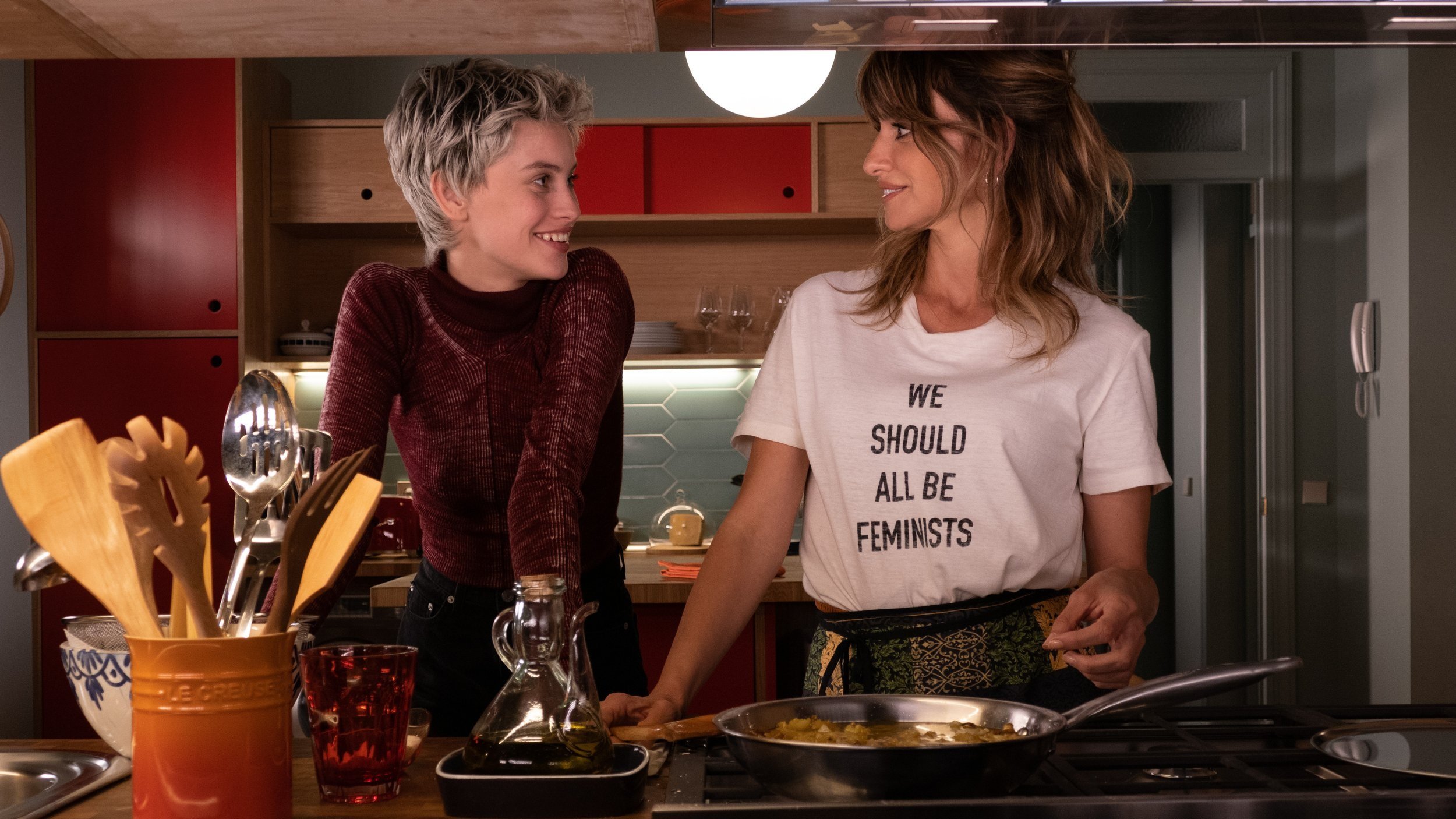Parallel Mothers
Pedro Almodóvar’s award-winning drama on the prospect of motherhood is gaining Oscar momentum for Penélope Cruz.
These days every new film from Pedro Almodóvar is an event and rightly so for he is a master of his craft. That is readily apparent in his latest work, Parallel Mothers, which has already been greeted by many as one of his best films ever. That would suggest that it is some kind of a masterpiece but, despite the sheer craft of the filmmaking and the appeal of the excellent performances, I cannot quite put it on that level. It is, for sure, very enjoyable but, even though it holds our attention for just over two hours, the material - or perhaps more accurately the shaping of it - does not work well enough to put this piece in the very front rank.
As usual Almodóvar is writer as well as director and here he gives us a story which ideally needs to unfold without the audience knowing too much in advance. What can be said, however, is that the opening scenes move with great rapidity and establish the film’s two central characters, each a single parent giving birth to a daughter in a hospital in Madrid. Housed there as roommates, these two form a bond despite their situations being very different. Janis (Penélope Cruz) has a career as a photographer but is delighted when a relationship with an archaeologist, Arturo (Israel Elejalde), leads to her becoming pregnant. In contrast we have Ana (Milena Smit) who is only fifteen and is aghast at her pregnancy since it was the result of what amounted to multiple rape. Since Janis has maternal instincts that also seem to colour her responses to young Ana, one supposes that Parallel Mothers will be a film about their shared bond - and in a sense it is, but plot developments embroider that and lead in all kinds of directions.
What emerges in due course involves secrets and lies, and that’s something which links this contemporary tale to Spain’s past history. That is made specific through the fact that Janis is seeking to arrange for the excavation of the site in the countryside where her great grandfather, a victim of the Falangists in the Spanish Civil War, is thought to be buried. Not least for Spanish audiences, this aspect will carry weight and it can be seen as a cri-de-coeur on Almodóvar’s part for Spain to be honest about its past in order to move forward wisely. A hint of this theme appears early on and ultimately it takes over the work, but that is less than wholly satisfactory because most of the film’s running time is devoted to the story of Janis and Ana and their children which makes that the centre of the narrative.
This personal drama echoes Almodóvar’s past work but, more emphatically than ever before, he seeks to adjust the tone. If Almodóvar has often embraced narratives that relish melodrama, this time he plays that aspect down despite a plot that does contain twists and turns that could be played out in that vein. Not for the first time it is female characters who are central here but, if previously a camp sensibility has often been at play in his sympathetic portrayals of women, here the female characters are presented without artifice. Both Penélope Cruz and Milena Smit turn in very fine performances, Cruz at the top of her game and Smit, a newcomer, never overshadowed, Furthermore, in support we have Aitana Sánchez-Gijón as Ana's actress mother, Theresa, and a cameo from Rossy de Palma as Janis’s best friend.
The incidentals (the photography of José Luis Alcaine, the music by Alberto Iglesias) are as assured as you would expect and are valuable extras in a film that has all the appeal of fine acting and of Almodóvar's technical authority. At the same time, Theresa's theatre work leads to references to Lorca and O'Neill and that readily reminds us of another great playwright who often dealt in works involving secrets and lies, Henrik Ibsen. Almodóvar may seek to avoid melodrama but he can't bring it off to the extent that Ibsen did and the blend of the personal tale and the enduring significance of the Spanish Civil War isn't an altogether easy fit even if both aspects are totally sincere. So, yes, Parallel Mothers is hugely engaging and will greatly appeal to Almodóvar’s admirers, but it is not an absolute masterpiece.
Original title: Madres paralelas.
MANSEL STIMPSON
Cast: Penélope Cruz, Milena Smit, Israel Elejalde, Aitana Sánchez-Gijón, Rossy de Palma, Julieta Serrano, Ainhoa Santamaría, Adelfa Calvo, Julio Manrique, Carmen Flores, José Javier Dominguez.
Dir Pedro Almodóvar, Pro Agustin Almodóvar and Esther García, Screenplay Pedro Almodóvar, Ph José Luis Alcaine, Pro Des Antxón Gómez, Ed Teresa Font, Music Alberto Iglesias, Costumes Paola Torres.
El Deseo/Pathé/Radio Televisión Española/Remotamente Films/Sony Pictures Entertainment-Pathé.
123 mins. Spain/France. 2021. US Rel: 24 December 2021. UK Rel: 28 January 2022. Cert. 15.


